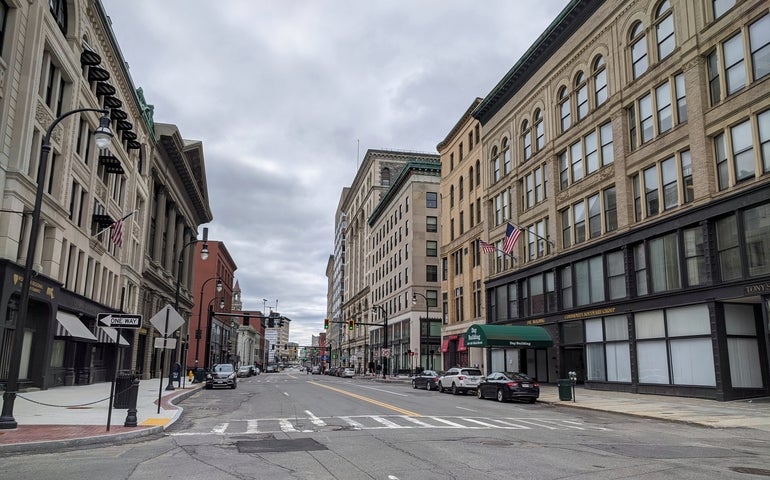When is the best time to start a company? During a pandemic may not be the obvious answer but several business executives say the COVID-19 crisis presents an opportunity to use shifts in behavior to explore new ideas and markets.
“We’ve just seen massive behavior change across the world. Some of that will be temporary, a lot of it looks like it will be permanent,” David Cancel, CEO of Boston-based Drift, said. “And behavior change, at least for me, is where I want to start from understanding an idea in a market and trying to understand if we can bring a new company into that market.”
Cancel spoke alongside Jeff Bussgang of Flybridge Capital Partners and Stefania Mallet of ezCater during a Boston Greater Chamber of Commerce Zoom event on Tuesday where they discussed the outlook for Boston’s tech and innovation community amid the COVID-19 pandemic and beyond. The panel also offered insight into how companies can shift their focuses to adapt to public health measures aimed at curbing the spread of the virus.
The respiratory virus and its spread across the world presents many challenges for businesses both big and small and layoffs and furloughs abound as companies deal with temporary closures. As shutdowns continue to help stop the spread of the virus nearly 20 million Americans lost their jobs in April — a record one-month drop in employment. The unemployment rate climbed from 4.4 percent in March to 14.7 percent in April.
While having an idea and noticing shifts in habits might sound good, acquiring the money to start a new business may seem daunting. Bussgang, who helped co-found a venture capital firm, said startup money has not dried up amid the COVID-19 pandemic.
“Venture capitalists have the same amount of capital that they had three months ago,” he said during a Zoom call with nearly 150 people. “These are committed funds that we manage. And so the many billions and billions of dollars that have been raised over the recent year by venture capital funds at all stages of the spectrum early, mid, late, that’s still there, that’s still available.”
Some entrepreneurs might be thinking of ways to take advantage of behavioral changes but those working for established businesses might use the shift to alter business models or pursue previously discarded ideas. One behavior in South Korea where Bussgang noticed a change: a lower interest in vacation in urban areas. A Marriott Hotel in downtown Seoul, he said, may not do as well as businesses centered in outdoor environments.
Flybridge Capital Partners invests in Getaway Homes, a company offering cabin rentals in remote locations in states like New Hampshire and Massachusettts. The organization has seen a surge in business, he said.
“That’s going to be another example of behavior changes that we’re going to see where people say, I’d rather be isolated in the woods in a cabin, as opposed to in an urban environment, in a 50-story hotel with thousands of people coming in and out of the lobby and the elevators,” he said.
In a separate sector, Mallet’s corporate catering company ezCater had to rethink how it could serve customers as working from home became normal and those staying in offices implemented public health measures. A decrease in sales led to the company laying off 45 percent of its staff.
Despite that, ezCater saw a bump in a product staffers created in March when they initially started to work from home — individually packaged catering to make it possible for a group of people to eat together but not share utensils or large platters of food.
Over 10,000 restaurants out of the nearly 80,000 ezCater contracts have signed onto the idea, Mallet said, and it has offset some of the challenges faced in recent months.
“It’s the same good food that you know, but it’s served in this way that makes it easier,” she said. “It also makes it safer.”
Bussgang said companies, both new and old, should look for opportunities within the obstacles the pandemic presents — it’s a time for business leaders to slow down and look for things that weren’t there before.
“For example, it is the case that people have a bit more time on their hands, customers and prospects are more willing to spend time with you,” he said. “And so it’s an opportunity to get deeper feedback on the product and create more customer intimacy.”

